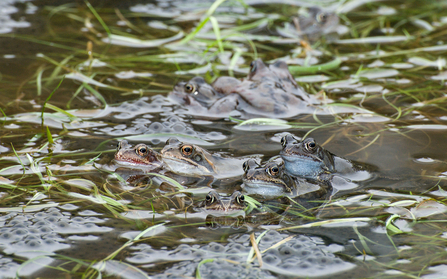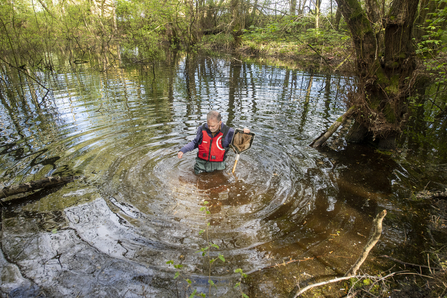Ice Age Ponds were created in the glacial retreat about 20,000 years ago, when mammoths still roamed the land. By now, most of us know that ponds are extremely good for wildlife, and that’s always something to be celebrated. But by delving a little deeper, you’ll find that ponds are also a big benefit to us, as individuals and on a global scale. Bodies of water are scientifically proven to contribute a multitude of ‘benefits people derive from ecosystems’, known as ecosystem services, that may not be so obvious on the surface.
Before we start thinking about what goodness ponds provide, let’s check we know what a pond is – you might be surprised. A pond is defined by the Freshwater Habitats Trust, as ‘a body of water (normally freshwater, but occasionally brackish), which can vary in size between 1 square meter and 2 hectares (equivalent in size to about 2.5 football pitches), and which holds water for four months of the year or more.
Blog - What Makes a Pond a Pond?
Ponds are found across the world, occurring in habitats from polar regions to tropical rainforests – often creating biodiversity “hotspots” (Céréghino et al., 2007). They are fantastic for wildlife, offering habitat to over two-thirds of all freshwater species in the UK (Freshwater Habitats Trust). Herefordshire’s Ice Age Ponds are home to several incredible species (link to blog on Spotlight Species), including the Great Crested Newt (Triturus cristatus), Medicinal Leech (Hirudo medicinalis), many nationally rare aquatic beetles and the carnivorous Bladderwort (Utricularia vulgaris).



